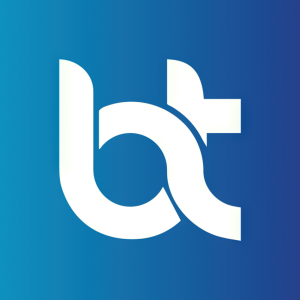BioXcel Therapeutics Announces U.S. Department of Defense Grant to University of North Carolina to Fund Study of BXCL501 (Sublingual Dexmedetomidine) for Treating Acute Stress Disorder
Rhea-AI Summary
BioXcel Therapeutics (Nasdaq: BTAI) announced a collaboration with the University of North Carolina at Chapel Hill (UNC) to evaluate BXCL501 as a potential treatment for acute stress disorder (ASD). The study is funded by a $2.8 million grant from the U.S. Department of Defense to UNC's Institute for Trauma Recovery.
The Phase 2a trial, expected to begin in H1 2025, will enroll 100 patients experiencing ASD after motor vehicle collisions. This double-blind, placebo-controlled study aims to assess BXCL501's efficacy in reducing ASD symptom severity and posttraumatic neuropsychiatric symptoms.
ASD affects millions annually, with an estimated 40 million Americans visiting emergency departments after traumatic experiences. This marks the second externally funded stress-related trial for BXCL501, following a study at Yale University for PTSD related to alcohol and substance abuse disorder.
Positive
- Received $2.8 million DoD grant for BXCL501 study in acute stress disorder
- Collaboration with prestigious University of North Carolina at Chapel Hill
- Phase 2a trial expected to begin in H1 2025, enrolling 100 patients
- Potential expansion of BXCL501 applications to stress-related disorders
- Second externally funded stress-related trial for BXCL501
Negative
- Phase 2a trial results not expected until after September 2026
- Efficacy of BXCL501 for acute stress disorder not yet proven
News Market Reaction 1 Alert
On the day this news was published, BTAI gained 6.06%, reflecting a notable positive market reaction.
Data tracked by StockTitan Argus on the day of publication.
Phase 2a efficacy and safety trial enrollment initiation expected in H1 2025
~40 million Americans go to emergency department annually after a traumatic experience 1
Second externally funded stress-related trial for BXCL501
NEW HAVEN, Conn., Oct. 15, 2024 (GLOBE NEWSWIRE) -- BioXcel Therapeutics, Inc. (Nasdaq: BTAI), a biopharmaceutical company utilizing artificial intelligence to develop transformative medicines in neuroscience, today announced a collaboration with the University of North Carolina at Chapel Hill (UNC) on a grant awarded by the U.S. Department of Defense (DoD) to evaluate the efficacy and safety of BXCL501 as a potential treatment for acute stress disorder (ASD).
The award provides
ASD symptoms occur in the days and weeks after trauma, and include anxiety, sleep disturbance, concentration difficulty, pain, and somatic symptoms such as dizziness and lightheadedness. Chronic adverse posttraumatic neuropsychiatric symptoms occur when acute stress reaction does not resolve, and include persistent pain, posttraumatic stress, and depressive symptoms. ASD prevalence varies considerably based on the study and nature of the trauma. An estimated 40 million Americans annually go to the emergency department after a traumatic experience.1
“There is an urgent need for effective interventions to prevent the development of these ‘invisible wounds,’” said Principal Investigator Samuel McLean, M.D., MPH, Professor of Psychiatry and Emergency Medicine and Director of the Institute for Trauma Recovery at the UNC School of Medicine. “Fortunately, advances in research methods and biologic understanding have created an opportunity to develop interventions to prevent symptoms associated with ASD. We look forward to initiating this important study of BXCL501, which could potentially be administered to patients in the early aftermath of severe trauma to reduce acute stress symptoms and prevent the emergence of chronic symptoms.”
“In addition to our development of PRN dosing treatment with BXCL501 for agitation associated with bipolar disorders, schizophrenia, and Alzheimer’s dementia, BXCL501 may have potential as a precision medicine for short-term treatment of the spectrum of symptoms related to trauma and stress-related disorders,” said Frank Yocca, Ph.D., Chief Scientific Officer of BioXcel Therapeutics. “Our lead neuroscience asset is currently being evaluated by Yale University School of Medicine for the potential short-term treatment of PTSD related to alcohol and substance abuse disorder, and we are pleased that a second externally funded trial will soon commence led by another prominent academic research institution.”
The ASD research is supported by the DoD under award number HT9425-24-1-1108. The content presented in this release is solely the responsibility of the authors and does not necessarily represent the official views of the DoD.
About BXCL501 Government-Supported Investigator-Initiated Trials
In addition to Acute Stress Disorder (ASD), BioXcel Therapeutics has been awarded grant programs for the development of BXCL501 for the potential treatment of post-traumatic stress disorder (PTSD)/alcohol use disorder (AUD) and opioid use disorder (OUD). A PTSD/AUD outpatient trial is being led by clinical researchers and regulatory staff at Yale University Medical School and funded through a cooperative agreement with the DoD’s Pharmacotherapies for Alcohol and Substance Use Disorders Alliance. An OUD inpatient trial is being led by clinical researchers and regulatory staff at Columbia University and funded through a cooperative agreement with the National Institute on Drug Abuse (NIDA).
About BXCL501
Outside of its approved indication by the U.S. Food and Drug Administration as IGALMI™ (dexmedetomidine) sublingual film, BXCL501 is an investigational proprietary, orally dissolving film formulation of dexmedetomidine, a selective alpha-2 adrenergic receptor agonist. BXCL501 is under investigation by BioXcel Therapeutics for the acute treatment of agitation associated with bipolar I or II disorder or schizophrenia in the at-home setting and for the acute treatment of agitation associated with Alzheimer’s dementia. The safety and efficacy of BXCL501 for these investigational uses have not been established. BXCL501 has been granted Breakthrough Therapy designation by the FDA for the acute treatment of agitation associated with dementia and Fast Track designation for the acute treatment of agitation associated with schizophrenia, bipolar disorders, and dementia.
About BioXcel Therapeutics, Inc.
BioXcel Therapeutics, Inc. (Nasdaq: BTAI) is a biopharmaceutical company utilizing artificial intelligence to develop transformative medicines in neuroscience. Its wholly owned subsidiary, OnkosXcel Therapeutics, is focused on the development of medicines in immuno-oncology. The Company’s drug re-innovation approach leverages existing approved drugs and/or clinically validated product candidates together with big data and proprietary machine learning algorithms to identify new therapeutic indications. For more information, please visit bioxceltherapeutics.com.
Forward-Looking Statements
This press release includes “forward-looking statements” within the meaning of the Private Securities Litigation Reform Act of 1995. We intend such forward-looking statements to be covered by the safe harbor provisions for forward-looking statements contained in Section 27A of the Securities Act of 1933, as amended and Section 21E of the Securities Exchange Act of 1934, as amended. All statements contained in this press release other than statements of historical fact should be considered forward-looking statements, including, without limitation, statements related to: the expected funding, timing and outcome of trial of BXCL501 evaluating its ability to potentially treat agitation resulting from acute stress disorder. When used herein, words including “anticipate,” “believe,” “can,” “continue,” “could,” “designed,” “estimate,” “expect,” “forecast,” “goal,” “intend,” “may,” “might,” “plan,” “possible,” “potential,” “predict,” “project,” “should,” “target,” “will,” “would” and similar expressions are intended to identify forward-looking statements, though not all forward-looking statements use these words or expressions. In addition, any statements or information that refer to expectations, beliefs, plans, projections, objectives, performance or other characterizations of future events or circumstances, including any underlying assumptions, are forward-looking. All forward-looking statements are based upon the Company’s current expectations and various assumptions. The Company believes there is a reasonable basis for its expectations and beliefs, but they are inherently uncertain. The Company may not realize its expectations, and its beliefs may not prove correct. Actual results could differ materially from those described or implied by such forward-looking statements as a result of various important factors, including, without limitation: its limited operating history; its incurrence of significant losses; its need for substantial additional funding and ability to raise capital when needed; the impact of the reprioritization; its significant indebtedness, ability to comply with covenant obligations and potential payment obligations related to such indebtedness and other contractual obligations; the Company has identified conditions and events that raise substantial doubt about its ability to continue as a going concern; its limited experience in drug discovery and drug development; risks related to the TRANQUILITY program; its dependence on the success and commercialization of IGALMI™, BXCL501, BXCL502, BXCL701 and BXCL702 and other product candidates; the number of episodes of agitation and the size of the Company’s total addressable market may be overestimated, and approval that the Company may obtain may be based on a narrower definition of the patient population; its lack of experience in marketing and selling drug products; the risk that IGALMI or the Company’s product candidates may not be accepted by physicians or the medical community in general; the Company still faces extensive and ongoing regulatory requirements and obligations for IGALMI; the failure of preliminary data from its clinical studies to predict final study results; failure of its early clinical studies or preclinical studies to predict future clinical studies; its ability to receive regulatory approval for its product candidates; its ability to enroll patients in its clinical trials; undesirable side effects caused by the Company’s product candidates; its novel approach to the discovery and development of product candidates based on EvolverAI; the significant influence of and dependence on BioXcel LLC; its exposure to patent infringement lawsuits; its reliance on third parties; its ability to remain listed on the Nasdaq Capital Market and impacts from any potential delisting on the Company and its ability to raise capital; its ability to comply with the extensive regulations applicable to it; impacts from data breaches or cyber-attacks, if any; risks associated with the increased scrutiny relating to environmental, social and governance (ESG) matters; risks associated with federal, state or foreign health care “fraud and abuse” laws; and its ability to commercialize its product candidates, as well as the important factors discussed under the caption “Risk Factors” in its Annual Report on Form 10-K for the fiscal year ended December 31, 2023, as such factors may be updated from time to time in its other filings with the SEC, including without limitation its Quarterly Report on Form 10-Q for the quarterly period ended June 30, 2024, which are accessible on the SEC’s website at www.sec.gov. These and other important factors could cause actual results to differ materially from those indicated by the forward-looking statements made in this press release. Any such forward-looking statements represent management’s estimates as of the date of this press release. While the Company may elect to update such forward-looking statements at some point in the future, except as required by law, it disclaims any obligation to do so, even if subsequent events cause our views to change. These forward-looking statements should not be relied upon as representing the Company’s views as of any date subsequent to the date of this press release.
Contact Information
Corporate/Investors
BioXcel Therapeutics
Erik Kopp
1.203.494.7062
Media
Russo Partners
David Schull
1.858.717.2310
Source: BioXcel Therapeutics, Inc.
References
- Kessler, R.C., Ressler, K.J., House, S.L. et al. Socio-demographic and trauma-related predictors of PTSD within 8 weeks of a motor vehicle collision in the AURORA study. Mol Psychiatry 26, 3108–3121 (2021). https://doi.org/10.1038/s41380-020-00911-3






